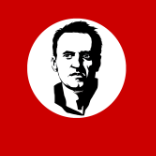
Message added by Krošek,
Na ovoj temi postoje stroža pravila oko kačenja raznoraznih sadržaja: Zabranjeno je repostovanje, kačenje tvitova ili bilo kakvih materijala (slika, klipova...), kao i goli linkovi. Postovi moraju biti napisani sopstvenim rečima, i dozvoljen je hipertekst (dugme Link). Izuzetno, kao propratni sadržaj uz sopstveni post, prihvatljivi su kratki isečci nekog dužeg teksta (ne i kraćeg kao što je obična vest).


Recommended Posts